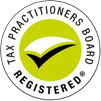How to Provide FBT Free Benefits to Staff This Christmas
Christmas is fast approaching and it’s the time of the year that many businesses want to thank their staff for their service and how much they are appreciated.
This article examines the tax implications of holding a Christmas party versus providing staff with certain gifts during this time.
It is assumed that the business has not elected to use the 50-50 split method or the 12 week register method.
CHRISTMAS PARTIES
Christmas parties constitute “entertainment benefits” and as such are subject to fringe benefits tax (FBT) to the extent the expenditure relates to employees/their associates attending the function unless the benefit is considered exempt, e.g. the “minor benefits” exemption applies. A minor benefit is one that is provided to an employee or their associate (e.g. spouse) on an “infrequent” or “irregular” basis, is not a reward for services, and the cost is less than $300 “per benefit” inclusive of GST.
- On-site Christmas party
If having a Christmas party, holding it on the business premises on a working day is usually more tax effective than holding it off-site. Expenses such as food and drink (including alcohol), are exempt from FBT for employees with no dollar limit, but no tax deduction or GST credit can be claimed. However, where employees’ families (i.e. associates) also attend and the cost attributable to each associate is $300 or more inclusive of GST, there is FBT on the associate’s portion of food and drink, and a tax deduction and GST credit can be claimed on that portion. The cost of clients attending the party are not subject to FBT, but no income tax deduction or GST credit can be claimed on their portion of the cost.
Where the Christmas party is held on the business premises on a working day with only employees and clients attending, and only finger food or a light meal and no alcohol is provided, then the entire cost is tax deductible. There is no FBT and a GST credit can be claimed on the entire cost.
- Off-site Christmas party
Christmas parties held off the business premises are exempt from FBT where the cost for the employee and their associates is each less than $300 inclusive of GST but no tax deduction or GST credit can be claimed. The cost of clients attending the party is not subject to FBT, and no tax deduction or GST credit can be claimed on their portion of the cost.
Certain benefits provided to employees at the Christmas function are considered separately when applying the $300 minor benefits exemption. For example, a Christmas party is held at a restaurant costing $220 per head, and at the same time employees are provided with a Christmas hamper (considered a non-entertainment gift), costing $150. Although the total cost per head is more than $300, the provision of both benefits will usually be exempt from FBT under the minor benefits exemption.
For the Christmas party expenses, the business will not be entitled to claim either a tax deduction or a GST credit. However, a tax deduction and GST credit can be claimed on the cost of the hamper as this is not considered to be providing “entertainment”.
Bringing the family along
Employees can make the Christmas party a family affair. Not only will it be a more inclusive experience, the ATO says the $300 minor benefits threshold applies per-attendee, not per-employee, which potentially means more FBT-free benefits.
Taxi travel to and from the party
Where the business pays for an employee’s taxi travel home from the Christmas party, and the party is held on the business premises, no FBT will apply as the entertainment occurred on business premises. The cost of the taxi fare will be tax-deductible as a minor benefit.
Where the party is held off-site, taxi travel to or from the Christmas function is part of the meal entertainment benefit. In such circumstances the taxi travel cannot be viewed separately, and must be added to the cost per employee of the Christmas function to determine whether the $300 taxable value has been exceeded under the minor benefits exemption for the employee or a relative.
GIFTS
- Give non-entertainment gifts
Non-entertainment gifts provided to employees are usually exempt from FBT where the total value is less than $300 inclusive of GST. A tax deduction and GST credit can also be claimed. These include flowers, alcohol, perfumes, gift vouchers and hampers.
When providing staff with occasional gifts of, say, beer or wine which is not consumed at the workplace or at a work social gathering, the cost is tax deductible and exempt up to the $300.00 limit.
Non-entertainment gifts given to clients and suppliers do not fall within the FBT rules as they are not provided to employees. Generally a tax deduction and GST credit can be claimed for these gifts provided they are not excessive or overly valuable.
- Avoid giving entertainment gifts
The provision of entertainment gifts has different tax implications (examples include theatre tickets, passes to attend a musical, live play, movie, tickets to a sporting event or providing a holiday). Where the cost for the employee and their associate is each less than $300 GST inclusive, FBT is not payable, and no tax deduction or GST credit can be claimed.
However, if the cost for the employee and their associate of an entertainment gift is each $300.00 or more GST inclusive, a tax deduction and GST credit can be claimed, but FBT is payable. The cost of any entertainment gifts provided to clients is not subject to FBT, and no tax deduction or GST credit can be claimed.
Accounting treatment
Businesses should maintain separate accounts in the general ledger for recording the above transactions to ensure that the correct income tax, GST and FBT treatment is applied.
Which benefits provide the best tax outcome?
The best tax outcome for your business this Christmas is to give staff non-entertainment type gifts that cost less than $300 GST inclusive per staff member as the cost is fully tax deductible with no FBT payable and GST credits can be claimed.
Employee On-costs
Benefits that are exempt from fringe benefits tax are not regarded as taxable wages for payroll tax, superannuation guarantee, and workers compensation purposes which results in a saving of these employee on-costs.
Superstream – Compulsory For All
All employers are now required to be Super-Stream compliant. The 31 October compliance extension granted by the ATO to smaller employers has now passed. Note that there are no general exemptions from Super-Stream – all employers must comply except for:
- Contributions to your own SMSF (i.e. if you’re a related-party employer) – for example, if you’re an employee of your family business and your Superannuation Guarantee contributions go to your SMSF.
- Personal contributions – for example, if you’re a sole trader and you contribute to a superannuation fund for yourself.
Fines of up to $8,500 can now be imposed by the ATO on employers who are not Super-Stream compliant.
Superannuation Guarantee
Still on Superannuation… although the ATO allows an extra month for businesses to lodge their December quarterly BAS (the due date is February 28 regardless of whether you are lodging online via the Business Portal, by paper or via Tax Agent/BAS Agent) there is no equivalent extension for the payment of Superannuation Guarantee.
Superannuation Guarantee for the October-December quarter is still due 28 days following the end of the quarter i.e. 28 January 2017. Failure to pay on time (even if you are just one day late) will result in your business being liable for Superannuation Guarantee Charge. For this reason, if you are closed throughout January, you may wish to consider making the October-December contribution in December.
Renting Out A Room Is Rental Income
Editor: The ATO has issued an information sheet on renting out rooms in homes/flats, etc., with an example for practitioners to show their clients. The following are excerpts:
Money your clients earn from renting out a room in their house is rental income.
This applies to rooms rented by traditional means or through a sharing economy website or app.
Your client can only claim expenses related to the part of the house they rent out and you need to apportion the expenses accordingly.
However, they can claim 100% of any fees or commissions charged by the rental facilitator or administrator.
CGT may also apply if they sell property used to generate rental income.
Claiming deductions when only renting out part of the house
As a general guide, you should apportion expenses on a floor-area basis based on the area solely occupied by the renter (user), and add that to a reasonable amount based on their access to common areas.
You can only claim expenses for when the room was available for rent. If you use the room in any capacity, for example for storage or as an office when you do not have guests staying, then you cannot claim deductions for expenses when the room is not occupied.
Example: renting out part of your unit or house
Jane has a two-bedroom unit with two bathrooms. She lives alone and only uses her spare room as an occasional home office, for storage and when she has guests. Jane mainly uses the ensuite bathroom.
The second bathroom is accessible from the main areas and mainly used by visitors. Jane decides to rent out the spare room on a sharing economy website to earn extra income.
The unit is 80 square metres in total. The spare room being rented is 10 square metres, and, when paying guests come to stay Jane removes all excess items from the room and does not access the area.
Jane also gives paying guests access to common areas including the second bathroom, kitchen, living area and balcony, which total 50 square metres.
For the period guests are staying and have access to the common areas, Jane can claim 50% of associated costs.
Jane also offers her guests access to her wi-fi for free.
Jane had the room available and occupied 150 days in the year. When she is not renting out the room she uses it as storage and a home office.
Claiming Rental Deductions
Jane calculates what she can claim based on the following questions:
- How big is the room? 10 square metres
- How big is the house? 80 square metres
- How big are the common areas? 50 square metres
- How many days is the room rented out? 150 days
She works out she can claim 17.97% of her general expenses after adding the two calculations together:
- Room occupancy
- (10/80 x 150/365) x 100 = 5.13%
- Common areas
- ((50/80 x 150/365) x 50%) x 100 = 12.84%
Jane can claim a deduction of 17.97% of her general expenses such as electricity, interest on her mortgage, internet expenses, rates and body corporate fees.
She can claim 100% of the expenses associated solely with renting out the room, such as the facilitator’s commission or administration fee.




